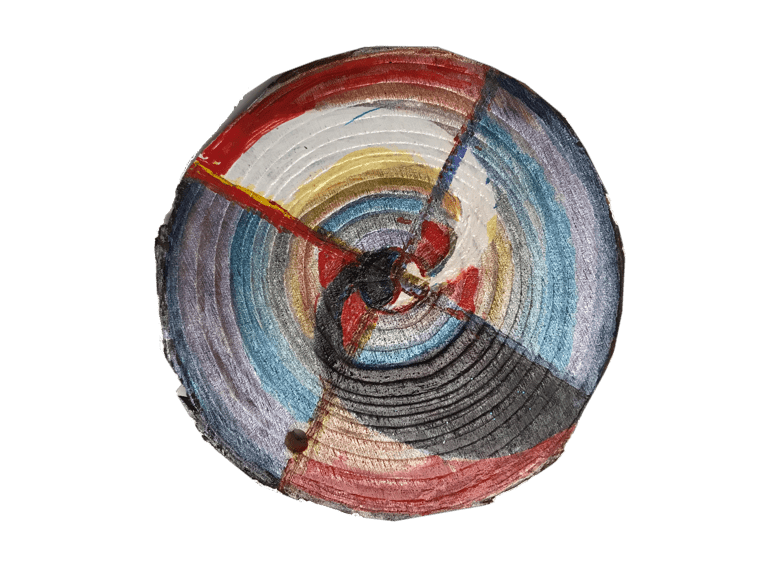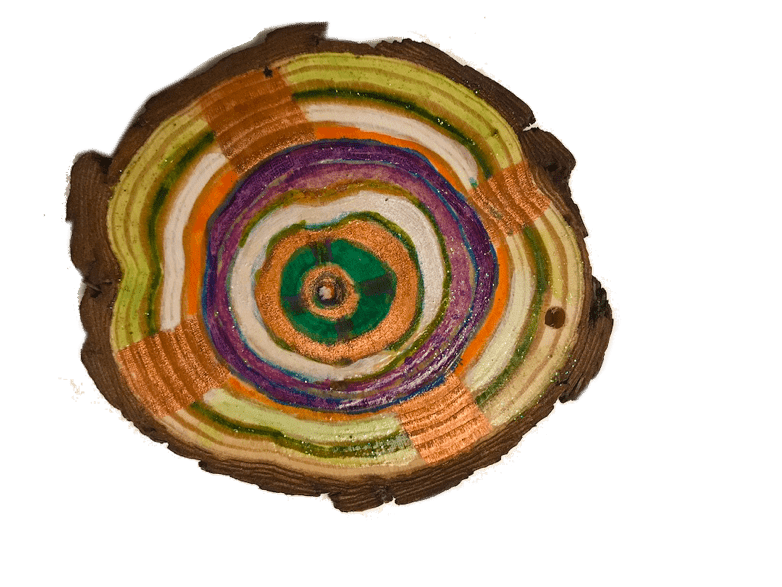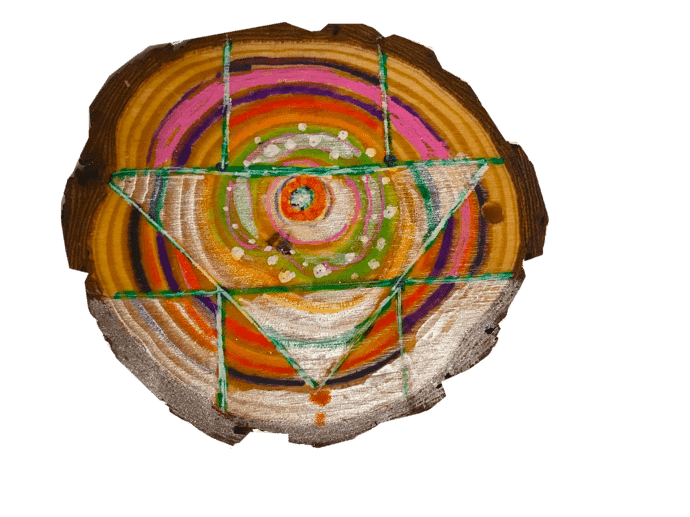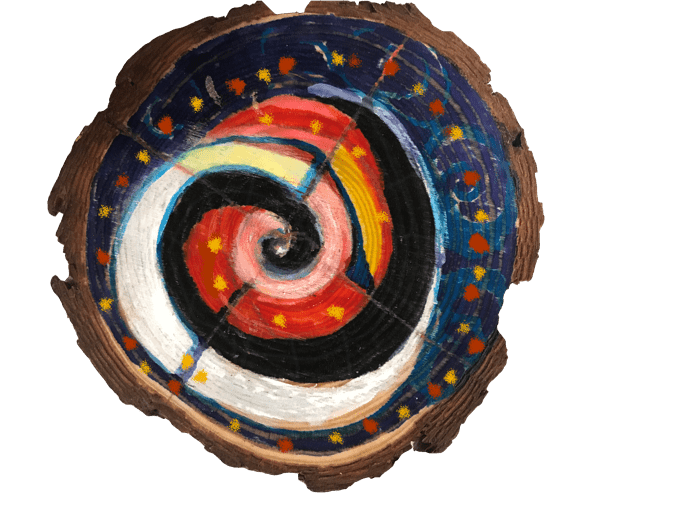“The Five Invitations” by Frank Ostaseski, a Zen Buddhist teacher, and co-founder of the Zen Hospice Project, are teachings on death that provide guidance and navigation through the dying process. Learning about death teaches us about how to live, and about the uncertainty of end-of-life care. We discover that learning about death can be an excellent companion to living fully without regret.

The Five Invitations are:
1) Don’t wait, 2) Welcome everything, push away nothing, 3) Bring your whole self to the experience, 4) Find a place to rest in the middle of things, and 5) Cultivate don’t-know mind.
Although I didn’t read these until after my mother’s death, they are helpful in thinking about her death and about her life. May these invitations support you as you journey through life and through death.

Don’t Wait
“Don’t Wait” is the first of the Five Invitations. It invites us to embrace the impermanence of life, to welcome each moment and to be engaged. Everything is constantly changing. Things come together, and they fall apart. This was certainly true when my 80-year-old mother, Mimi, elected to have back surgery. She’d tried a cane, a walker, a wheelchair. But she was in extreme and very deep pain. She could no longer walk the track she loved, and she hated being dependent and dysfunctional.
She entered the operation alert and alive, and came out of the back surgery in a coma. She had an aneurism, and now was on many machines in the hospital. Life was very fragile; she was vulnerable, as we were. Life comes together, and life falls apart: suddenly she was dying. I had to accept the very deep sleep that she was in.
I will never forget my mother Mimi lying there in the hospital bed, green shower cap on her head-green hospital gown, pearl nail polish on her toes and on her hands. So beautiful! The sounds in the room were the bleeping of the machines which were keeping her alive, tubes in her arms, in her mouth, medicines dripping into her. My mother Mimi did not wake up.
So don’t wait; don’t have regrets—tell someone that you love them, say goodbye and shower down your golden love to others, because you might not have another opportunity. Embrace impermanence and change.

Welcome Everything, Push Away Nothing
The second invitation calls us to discover what death can teach us. This invitation invites us to be open and to push away nothing, but give our attention to what is there in the many experiences of dying. It asks us to be open to what is happening, both the pleasant and the unpleasant, with our fearlessness and with our love. Accepting life, and death as it is, with an open, receptive approach, we bear witness to our suffering and to the suffering of others. We let in, and we let go, knowing that love heals. This invitation asks us to open the doorway and to accept life as it is, to see through any obstacles, to accept the conditions as they are.
The machines are keeping my mother alive, and my father, sister and I decide to unplug them. One by one we turn off the many machines, and one by one we stop the medications. The room is quiet, we let in our loss and accept that my mother Mimi is actively dying, there in her green shower cap and beautifully polished nails.
We gather at her bedside and form a family circle and read Kahlil Gibran, holding her in our love. The loss of my mother comes closer. My mother who gave me the gift of life. As you journey through the bardos, the in-between states of life and of death, I am here for you, holding you close to my body, like a mother holding a child.

Bring Your Whole Self to the Experience
This invitation asks us to include and accept all parts of yourself. Respect what is there. Don’t run away. It encourages us to be authentic and to bring our humanity to caregiving. This includes your brokenness, feelings of helplessness as a caregiver, and your inner critic and judging self. To bring your grief and the powerful emotions that arise with it. As well as your compassion and empathy, your bodhicitta and awakened heart, your compassionate caregiving.
I sit with my mother and feel deep gratitude to her. Our relationship was complex—there were difficult years as mother and as daughter. Later, my rebellion towards her softened and healed. Holding her hand, letting in her dying, I open to compassionate refuge and to the courage to let go of my mother, accepting her death, feeling my kindness and love towards her.
I bring my whole self to the experience of her dying. Vulnerable, I accompany my mother through her journey, I feel love, I am grounded in connectedness to my mother.
My mother Mimi was a kind person. I sit with her, grief pouring over my body, I sit in the pristine presence of my love for her and the love she gave to me. Holding her beautiful brownish hands with her polished nails and pretty face, I know she is not in pain. Memories pour in as I sit there. I bring my whole self to your bedside, to your room, as you move closer toward death. I tell my mother that my sister and I will care for our dad, and not to worry about him, he’ll be okay. I say, it’s okay, and love fills the room.

Find a Place to Rest in the Middle of Things
This invitation reminds us that it’s important to be in the present moment, without distractions, with awareness, and mindfulness at the bedside of those who are dying. To share your courageous presence, with a strong yet vulnerable heart. A place of rest, a pause is always available to us. We can bring our full attention to the spaciousness of this present moment. Without distractions. Without anxiety, fear, and worry. We can do less, and feel this moment, now, resting in open awareness with our breath, present and vulnerable.
This invitation encourages us to rest in the middle of things, to find a more peaceful, calm self in the middle of the dying process. To find the breath. Death is often messy; death can be confusing-when death enters a room it can be scary. We can use any obstacles we encounter on the path to caring, we can skillfully interact as we create a non-judgmental space that is calm, warm, and open.
As a caregiver, death can bring up your grief and sorrow, any anger, regrets, and stories about the person who is dying. So, it’s important not to lose your way, to find grace in the dying process, and in the mystery of death.
After a full day at the hospital, I went back to the hotel where we were staying to find a quiet place and to rest in the middle of things. I meditate, calmly, just sitting. Two hours later, I took a cab back to the hospital, got a bran muffin and coffee. It was dark outside, and I gently climbed into bed with my mother, and held her in my arms. Our hearts near each other, resting in the middle of her active dying, holding her with the courage of a warrior, the courage of the heart, and the courage of vulnerability.
I hold you through the bardo, through your journey as I become your mother, you become daughter. Her breathing is slow. She is peaceful. She is my daughter. My mother. My daughter. I hold her.

Cultivate Don’t-Know Mind
This invitation asks us to bring your Beginner’s Mind with its many possibilities to the dying experience. Open, without expectations, surrendering to the journey of life and death. Bringing your curiosity, wonder, and don’t-know mind, your receptivity. Let your heart lead the way. Be willing not to know, to live in the fresh moment. Accept impermanence. Let go. Be open. Accepting everything, fear, anger, pain, without attachment to outcomes, we empty our minds and open our hearts.
Listening to my heart, not knowing, resting in the intimacy of the moment, I cradle my mother in my arms, breathing together, aware of the gaps and spaces between her breaths. Using the breath to come into the present moment. Intimate, together. Not knowing how long her dying would take. Holding her, breathing together chanting “om mani padme hum.”
Each breath a letting go, a lingering between two spaces, between life and death, I hold you gently, gently holding you, my mother, a profound experience. Your skin grows cooler, and you are in my arms, the blinds are open, and the sun is rising as your life is setting. Breath. No breath. I am here with you, blessings, my mother, breath breath, no breath, breath, no breath. Dying.
It is quiet. I hold you as the radiant light in the room passes, in your moment of death I hold you, and look at the rising sun. And later sip coffee with honey and a muffin. Sitting, sunrise, my mother has died. The sun is rising, again.
The Five Invitations are gentle reminders about the preciousness of human life. Human beings each die in their own unique way. These invitations can be practiced together, or separately as you navigate through the dying process with confidence and more ease. The Five Invitations are a request to participate in your life, to be fully present to life and to death, as we become companions in the sacred journey of dying.

